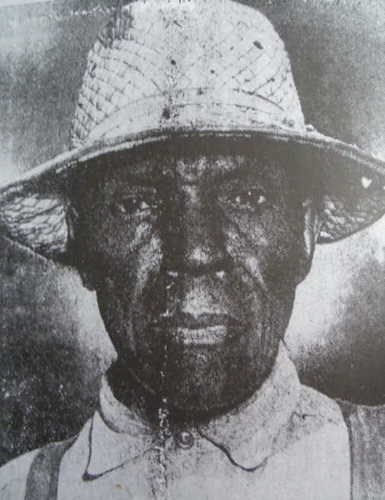The fact that the first will ever probated in the County of Simcoe belonged to a black man with no last name is both heartbreaking and hope inspiring at the same time.
His name was simply George. Born into slavery some time around 1769 in the State of Virginia, he arrived in Canada before 1812 as he was known to have been part of what was known as Runchey’s Company of Coloured Men, a corps of black soldiers.
This militia company was a mix of free and enslaved African Americans. British North America, what is now Canada, was beginning to tackle the slavery issue but had not abolished all of the practices associated with it at this time.
The black company was originally proposed in early 1812 by Richard Pierpont, a Senegal-born slave of a British Army officer. Many slaves were given their freedom if they agreed to fight with the British during the American Revolution and Pierpont had been among that number and had become a military man in his own right.
After surviving Atlantic crossings in slave ships, years of servitude and abuse, and battles in perhaps two wars, these black men were finally offered a reward.
They could receive up to 100 acres of land upon which to settle. It was something, even if their white counterparts were given 200 acres. Richard Pierpont simply asked for ship’s passage back home to Africa. Request denied.
Against this backdrop of discrimination and difficulty, George prevailed. He petitioned for land and was granted Lot 15 on Concession 2 of Oro Township in the area near the well known African Methodist Episcopalian Church.
Legal documents, up to and including his last will and testament, required that George have a complete name for the records. He settled on George A. Darkman. In doing so, he retroactively bestowed a surname on his family back in Virginia as his will shows.
“I, George A. Darkman (a man of colour) of the Township of Oro, in the County of Simcoe, Home District and Province of Canada, yeoman, do give and demise unto Rebecca, my beloved wife, jointly with my two sons, Frank Friend Darkman and Alfred Zeres Darkman, and their heirs, all my estate provided they make their appearance on my estate within five years after my decease.”
Sadly, they did not come. Were they still enslaved, too poor or frightened to travel, or deceased themselves? We do not know. George had a provision built into his circa 1841 will that the land should go to a white acquaintance if his family failed to come north and that is exactly what transpired.
Of the black families who came to Oro Township during those early settlement years, the last remaining descendants were members of the Thompson family.
In 1949, when the community gathered to celebrate the centennial of the little African church, the Barrie newspapers noted that 72-year-old James Dixon Thompson had only recently left his Oro home to reside with his brother, John Allan Thompson, at 82 Sanford St. in Barrie. James had been the last of the black settler families still residing on family farms. A patient at Royal Victoria Hospital at the time, James was too ailing to attend the events.
James, John and their siblings were the well-known children of Edward Thompson and Anna Bush, both of whom were the offspring of American born parents.
James’ brother, George Wallace Thompson, migrated to Toronto, and was remembered as a gifted singer and a member of the quartet at the British Methodist Episcopal Church on Chestnut Street in that city.
David ‘Davie’ Thompson was warmly described in the Barrie Examiner when he passed away in January, 1934.
“The grandson of escaped slaves, Davy Thompson, was a short man with a humped back due to an accident as a child. Well liked in the community, he loved to sing and play the mouth organ, and entertain at many local functions.”
The last surviving Oro Thompson sibling was John Allan. He died in Barrie at age 91, after living 50 years in Oro Township and 41 years in this community. John Allan Thompson was a retired CNR worker but he was best remembered as an enthusiastic street preacher of the Pentecostal faith who drew crowds from Barrie to Toronto and everywhere in between.
Former Ontario Premier, E.C. Drury – an Oro man himself – took a great interest in the little African church and in the lives of the African Canadians who lived in its vicinity. He penned some often-shared words, which bear repeating again here, in his poem entitled An Ode to Freedom in Canada:
"From the darker night of slavery,
Through the night they journeyed far,
In their hearts was the flame of freedom,
And their guide was the pale Pole Star.
Northward, and northward ever
To the land of Liberty,
Where no man need say, 'Master'
For every man was free"
Each week, the Barrie Historical Archive provides BarrieToday readers with a glimpse of the city’s past. This unique column features photos and stories from years gone by and is sure to appeal to the historian in each of us.



